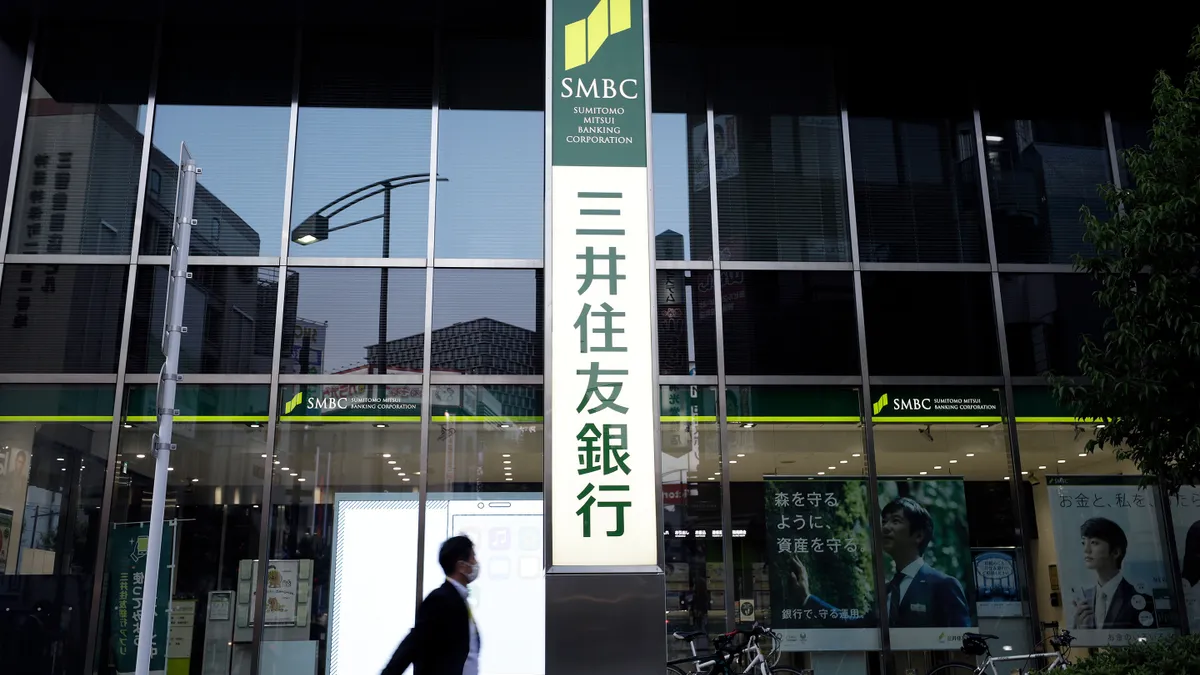Digital native Jenius Bank launched its first product, a personal loan offering, just shy of a year ago. Its second product, a high-yield savings account with a 5.25% annual percentage yield, was rolled out in November.
But don’t call the folks there newbies. Jenius is backed by Japanese megabank Sumitomo Mitsui Banking Corp., a company with hundreds of years of banking history.
Banking Dive sat down with Jenius Bank President John Rosenfeld to discuss what’s fueled the bank’s growth in the past year, and what the bank is looking forward to in the future.
Editor’s note: This interview has been edited for clarity and brevity.
BANKING DIVE: Jenius recently hit $1 billion in deposits in its high yield savings accounts, after launching that product in November. What’s the special sauce to rapid growth?
JOHN ROSENFELD: When our parent company set out to build a digital consumer bank in the U.S., they brought me on because I had done it in the past, and they gave us the funding, the autonomy and the opportunity to start with a blank sheet of paper.
We didn't have existing customers, so we didn’t have to deal with legacy technology or migrating customers from one system to another. We could start with the latest technology, so our entire bank was built in the cloud. We don't have a single data server anywhere in the organization. Number two, we're 100% paperless, and we actually don't even have offices. We were able to attract talent that other banks can't because they say, “Well, you're gonna have to move to Topeka.”
When I was telling the story to people about what we were going to build, I asked, “What really ticks you off about your bank, things that you don't like that they do to customers? We don't have to do any of those.”
So we don't have any fees. We put our phone number smack in the middle of the front of the homepage for customers to reach us, and we made the call center open 24 hours.
We kept it simple, and we only have two basic products: the simplest savings account on the planet and the simplest personal loan on the planet. And that was really by design. We're not gonna put a bunch of bells and whistles. We're just gonna make it really easy to do business with us.
Is checking on the horizon?
Yes, absolutely. If you think about what's required for a checking account, you have to have a debit card, you have to have a whole different level of monitoring for fraud. You have to have Zelle and the ability to get money out of an ATM. There are so many intricate elements that aren't really necessary for a savings account. That promise is going to take a little longer because we want to make sure we're doing really, really well.
Last year, you told Banking Dive Jenius would launch savings and checking within the year. Did something delay the checking launch?
The timeline for checking was pushed out to some extent after we did a deeper dive into the scope of work to fully understand all of the intricate additional needs [to launch it], and what we quickly realized was we were ready to launch savings. So rather than wait – and make customers wait – for checking, we opted to launch savings earlier.
Jenius keeps its customer count private, but the bank hit $1 billion in deposits within seven months. How has the bank acquired those customers?
Our primary acquisition channels are digital aggregators, such as Bankrate, NerdWallet and DepositAccounts.com; and on the lending front, we offer our loans through Credit Karma and through LendingTree. It's kind of like a food court for financial services because people that go there are planning to eat. They're planning to get a savings account or a loan. We're competing with the others in the room, in a sense, for their business.
How is Jenius’s relationship with its parent company?
They have given us the autonomy to create and design the value proposition, and I think they had the self-awareness that in the Americas, they didn't have the retail expertise in place. We’ve had all the support we could have ever wanted. That’s the easy side.
They also have very high standards when it comes to things like compliance and risk management, things like cybersecurity. To their reputation, these things are sacred. We have to meet these standards. It's like there's a high admission cost, but the show is great to attend, right? You really get to enjoy a heck of a show, but you’ve got to earn the right to get through the door.














